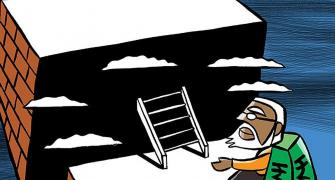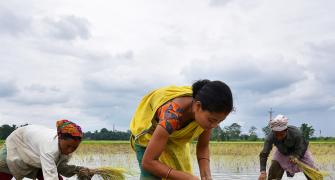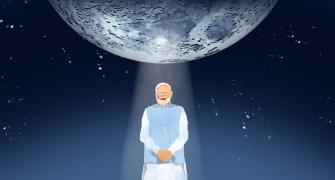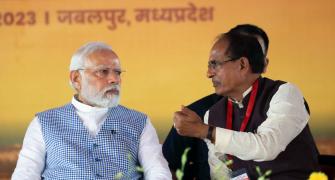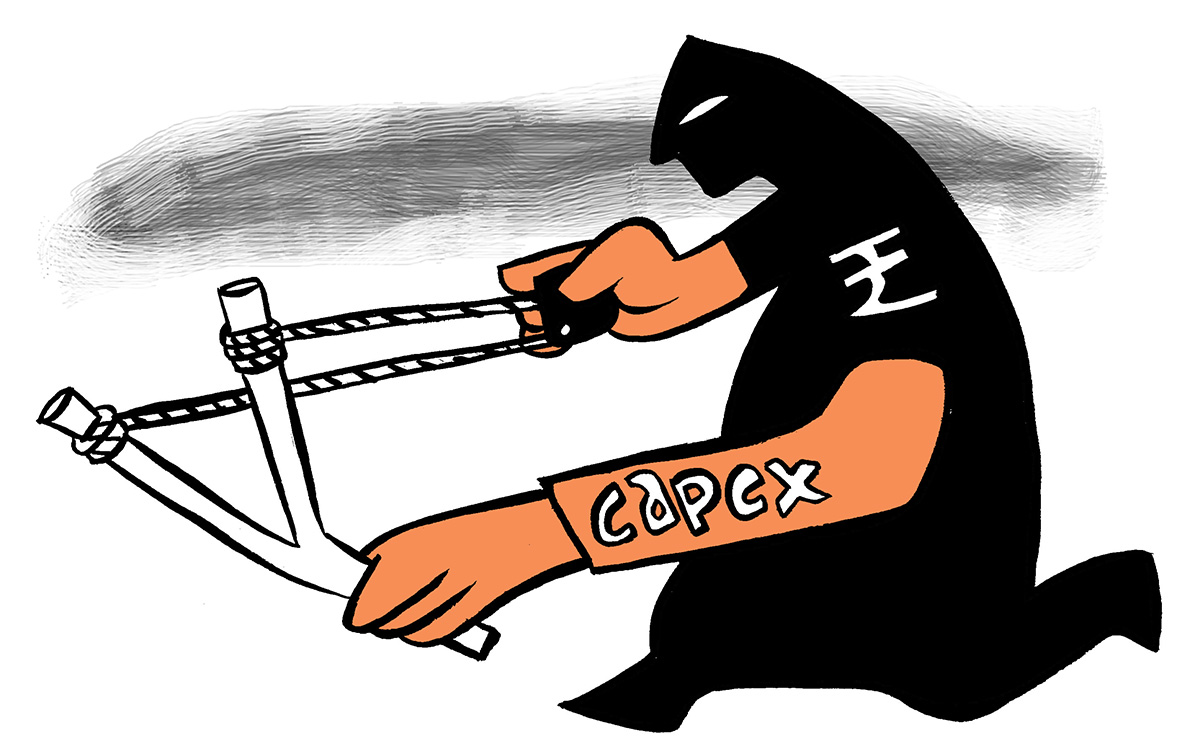'I'm pitching India for the strengths we offer, including the English language, engineers, doctors, nurses, professionals, innovative talent of startups.'

Finance Minister Nirmala Sitharaman speaks to Business Standard's Shrimi Choudhury, Asit Ranjan Mishra and Ruchika Chitravanshi on issues ranging from the G20 summit to inflation, growth, elections and more in a free-wheeling interview at her North Block office in New Delhi.
Part one of the interview:
How do you look back at India's G20 presidency?
Undoubtedly, it was concrete in its outcome.
India utilised the opportunity in all respects -- diplomatic, finance, and all other ministerial tracks. The contents were substantive in each of them. Just because some of them had only a chair's summary does not mean the job was not completed.
From the finance track, the Russia-Ukraine matters were discussed in Bengaluru.
Continuing with the language of the Bali summit was not going to be possible because of changed circumstances -- not because there was no consensus.
This singular issue was beyond the realm of the ministers concerned. So, it went to the leaders, and the negotiations a day or two before the summit clearly showed that the language needed to be different, taking into account the factors critical for today's world -- food security, energy security and fertiliser security.
Growth in tax collections has slowed. Given this, and in view of next year's general elections, when there will be pressure on expenditure, how comfortable are you with government finances?
My expenditure going up or down doesn't matter. The economy's buoyancy gets reflected in revenue collections. We are closely monitoring capital expenditure, both at the central and state levels.
In the Centre's expenditure, the big-ticket ones like the Railways and defence are all moving fast.
So, the Rs 10 trillion meant to maintain the growth momentum through public expenditure has shown results. We have not only shown the intent but also provided the outlay to support the growth. The reduction in direct taxes is not even one per cent.
We have handled revenue collections by not increasing taxes but plugging loopholes, and making compliance easier. We also made sure that evasion was detected and people were given the choice to say they missed out and pay; they responded positively.
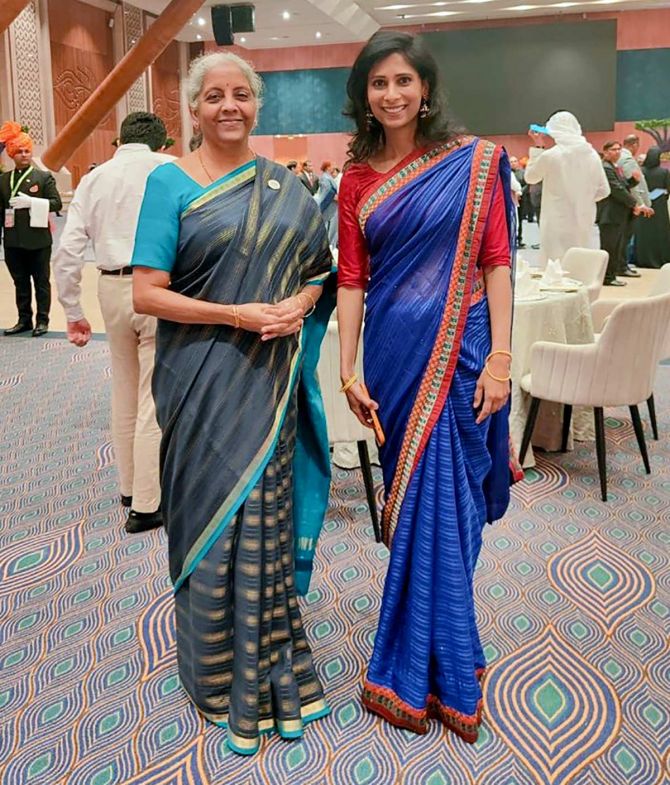
The nominal GDP growth rate has been around 8 per cent, against the Budget projection of 10.5 per cent. Do you think that will have a bearing on revenue and expenditure this year?
I don't think that will have an effect. Look at the way small and medium industries and many other newer sectors are getting activated. I would wait to see how these developments pan out.
If the activity, expansion programmes, or the coming of newer industries plateaus somewhere, I would be concerned.
We see that passenger vehicles are getting stocked up to meet festival season demand. These are indicators of activity and good buoyancy in the economy.
Do you think we can meet the 10.5 per cent nominal growth target for this year?
I would like to believe that we will achieve the target.
A recent brokerage report said private capex actually declined in the last two quarters. Do you believe the government's Rs 10 trillion capex push is crowding in private investment?
It (crowding in) happened last year. I wish it happens this year too, particularly given the interest being shown by investors in areas where the investments had not happened earlier, such as the hydrogen mission and green ammonia.
Newer and big-ticket areas are also drawing the private sector’s interest. Many sovereign funds have actually come into the country in the last two years, either through the National Investment and Infrastructure Fund or with a partner.
Invits, meanwhile, have also shown good progress. That is a newer instrument through which a lot of investment is coming.
Is there a concern over rural income and demand because of poor rains?
We have to look at it in a more granular way -- by the geographical area, each area for itself -- and then understand which crops might be affected.
We are not watching the numbers alone; we are also considering where the crop pattern might be affected, and where floods could affect crops.
We are looking at all these to decide on our buffer stocks, how much further support might be needed to be extended, and so on.
If dalhan (pulses) and tilhan (oilseeds) are both affected, I should be ready to import and also help the farmers.
The government is working to understand the El Nino factor, even beyond this monsoon, to early months next year.
The G20 synthesis paper on crypto is leaning more towards regulation than ban. So, is a ban now completely off the table?
The global understanding on crypto is that it is left to the sovereign authority in countries wanting to have a crypto ecosystem to regulate these assets. But if somebody wants to regulate it alone, they cannot. We need all to be on board: If one thing happens here, similar things can happen elsewhere to make it effective. That's G20’s collective thinking.
Crude oil prices are again going up, and so are fertiliser prices. What will be the implication on the government's subsidy figures and inflation?
This is not the time for me to speak about it with such a sense of confidence: Inflation is a permanent challenge which all of us will have to live with. We will have to work to help the common poor citizens.
Prime Minister Modi's government has repeatedly had a better record in managing inflation than earlier governments. But that doesn't mean that I'm going to sit back; we are taking enough measures.

After a cut in cooking gas price, is there a plan for petrol and diesel too?
We have done this once or twice before.
That question should also be asked to states which have never reduced prices. Even when we reduced, they didn't. Tamil Nadu, West Bengal, Andhra Pradesh, Jharkhand didn't reduce fuel prices. Himachal increased it by Rs 3 after the Congress came to power. Punjab also increased it.
How will the government manage the subsidies?
On fertilisers, we've taken a position that the farmer should not be burdened. We took on the burden ourselves two years ago, when the price went up 10 times.
Now, LPG prices are not coming down. But the prime minister felt 'It is Raksha Bandhan, I need to give them this'. Therefore, we announced this, and not only for Ujjwala account holders.
We have a commitment to pollution-free kitchens; 7.5 million more new accounts are coming.
We are committed to everyone -- women, farmers, backward, scheduled castes -- and our subsidy and subsidy-related policies are governed by these concerns.
Are you confident about meeting the 5.9 per cent fiscal deficit target for FY24?
Yes, and look at our record. Even when there was the gravest of grave challenge in the Covid time, we explained in a clear statement (on missing the target).
The disinvestment road map is stuck in the slow lane. Do you agree?
These investment decisions of the Cabinet will have to be honoured by me as a minister. But I also have to see the appropriate time for bringing some disinvestment proposals to the market.
Will the IDBI stake sale go through in FY24? Is there anything holding it back?
IDBI should happen, but I want to watch the market and take a call on when that will be. Nothing particularly is holding it back.
Lots of attempts are being made on internationalising the rupee. How do you see it?
There's a lot of interest in the rupee. And countries which no longer have the comfort of a reserve currency like the dollar are happy to deal with the rupee, more so because they find it has been stable. It also gives them a comfort that India is an emerging market. It has its own large market.
We have extended a lot of quota-free, duty-free trading opportunities. Many least developed countries think they have access to the Indian market. And therefore two-way trade can be prosperous. Now, nearly 22 countries are in discussions to see where they can tie it all up.
Are you open to discuss additional GST on diesel tax?
I'm looking at an economy which has to grow.

How do you look at China's slowdown, and opportunities and challenges for India?
We've had a big issue of market access with China for 15-20 years. Every government has attempted to break those barriers. But there has been little success because they (China) believe in circumventing your access through non-tariff barriers.
We have to deal with a sincere effort by the government so that no market is left untouched; we will keep tapping that.
I'm pitching India for the strengths we offer, including the English language, engineers, doctors, nurses, professionals, innovative talent of startups.
The favourable policy and stability this government has offered in the past nine years, the taxation and investment policies, all of these provide investors an environment in India which is better than any other country.
There was some talk on import licensing for laptops and other devices. There's a view that we're going back to the old licence raj. Your view?
I don't think so. We are not going back to the licence raj. Unless we give support for some areas of manufacturing, they will never be able to stand up.
In the last few years, we have supported automobiles, auto components making them stand up to the challenge and be competitive, so that they are not flooded by cheaper goods, and make qualitatively superior products.
To that extent, we've certainly tried to give that cover for India's own production.
But that is not going back to the licence raj.
- Part 2: 'Yes, we are coming back'


